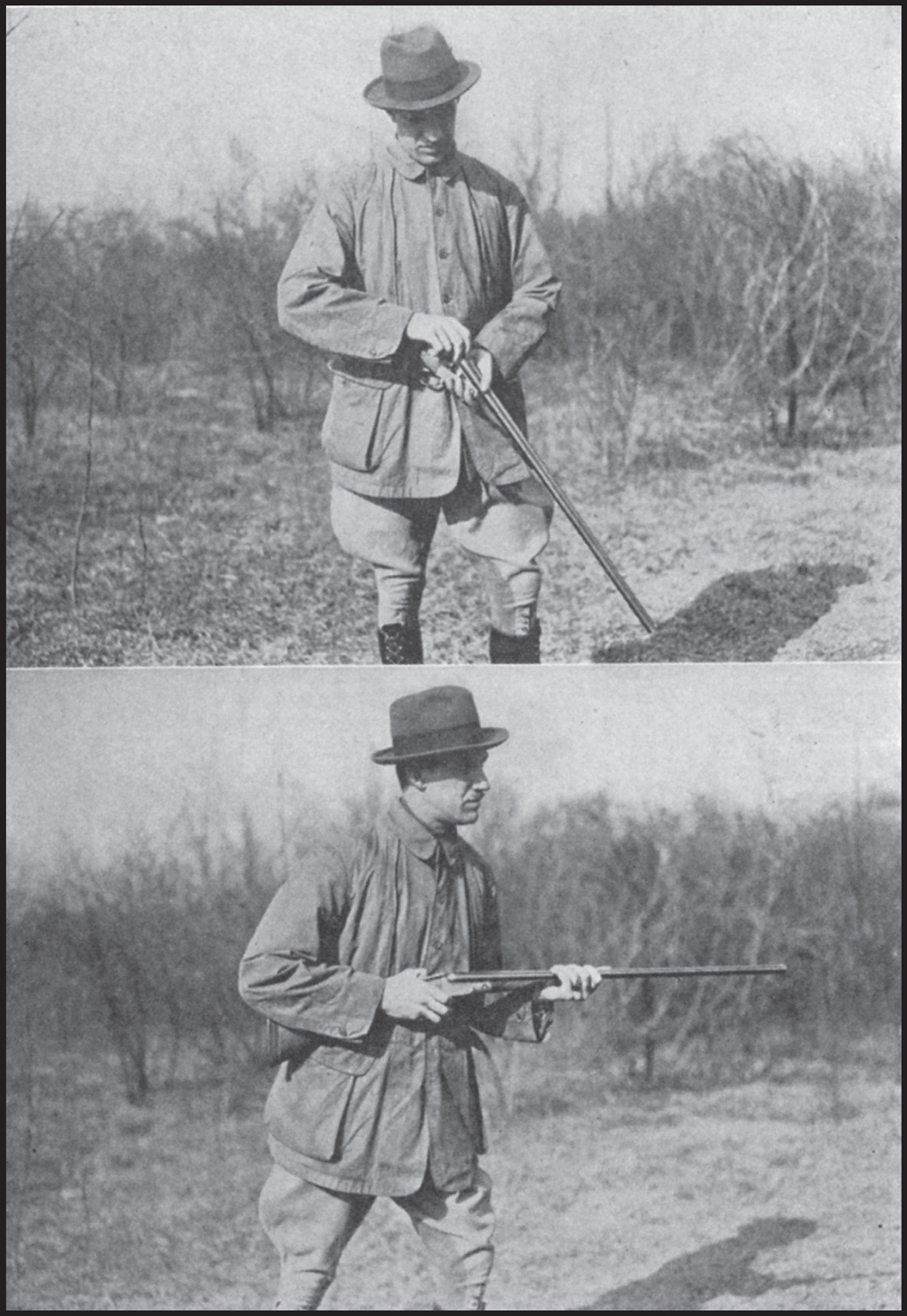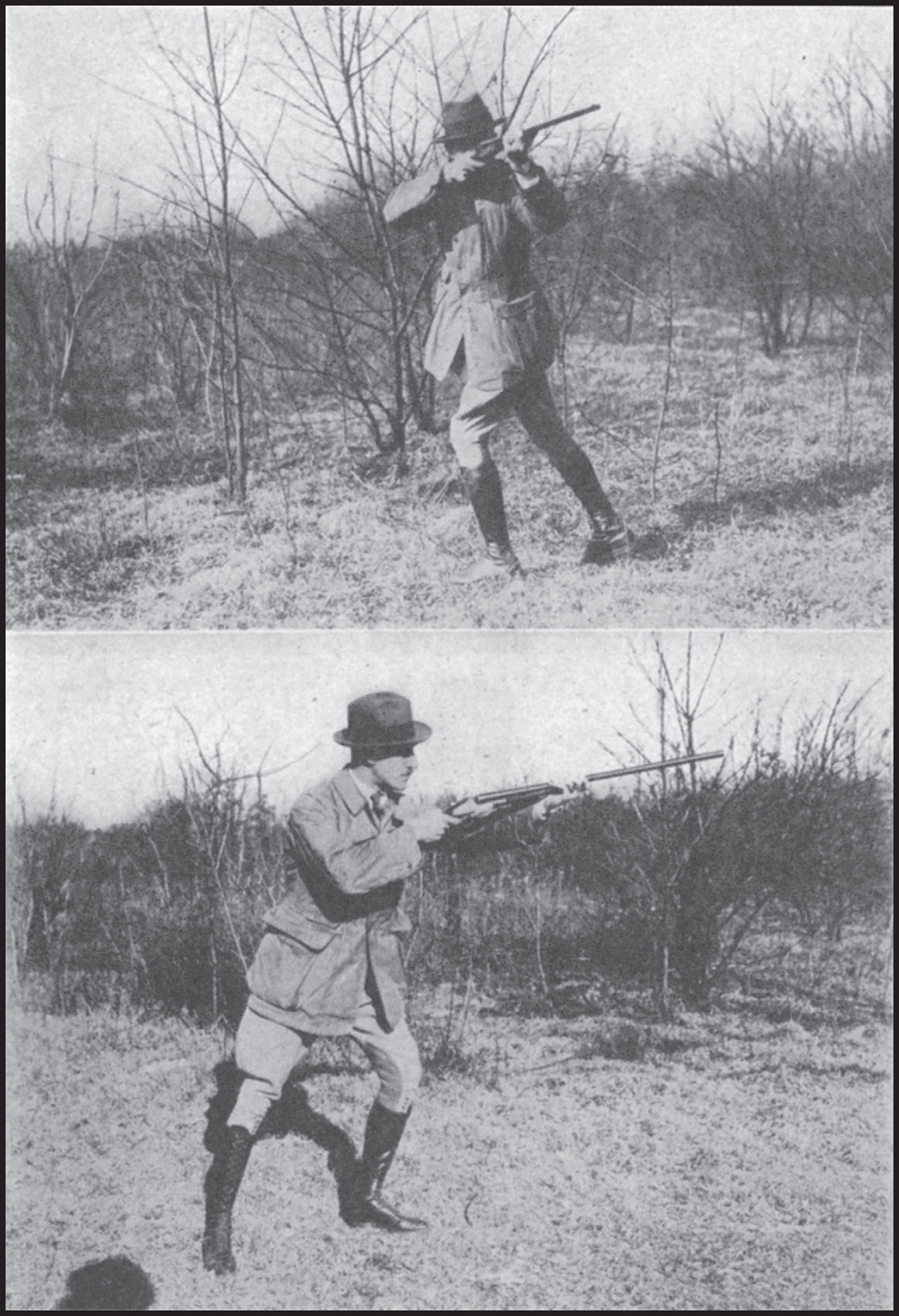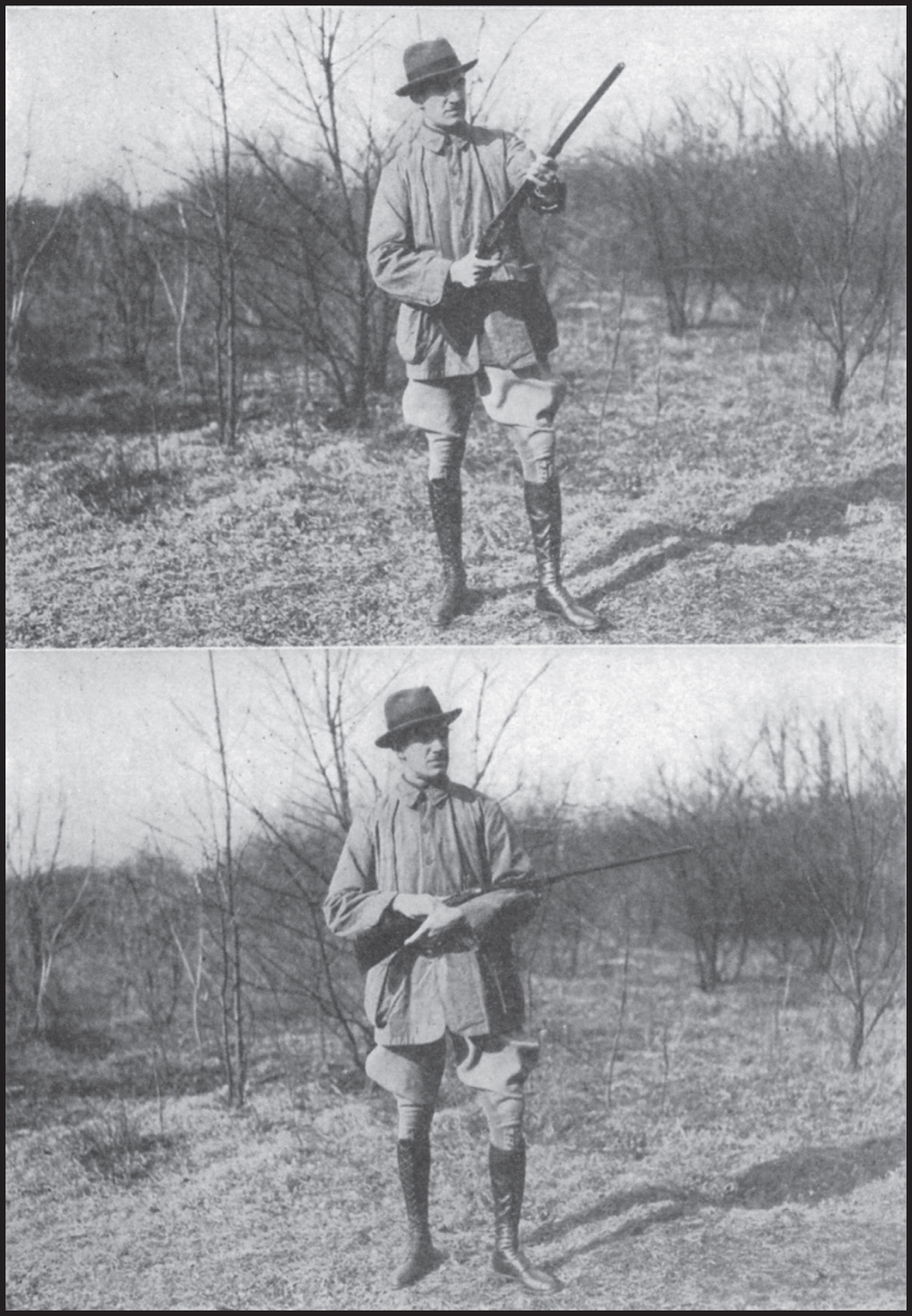
THERE is nothing of more importance to a man’s success in the field than his respect and consideration for his shooting companions, and I know of no better way to quickly judge a man’s full worth than to take him on a shooting trip. As a writer on the subject said, “The field is the touchstone of the man.” Have you ever suffered having what was otherwise a perfect trip utterly ruined by one of the party, due to his greed for shots, carelessness as to the safety of others, grumbling at the luck or conditions, and shirking his share of the work in camp? I have been so unfortunate, but it served its purpose, for it made me a most careful judge of human nature.
Have you ever hunted under the most adverse conditions with a partner who remained cheerful and enthusiastic and took everything in good part, no matter what happened; who laughed when the weather kept you indoors day after day; who hunted cheerfully when the dogs worked badly or the birds were scarce and wild; who did his share of the work in the blind in zero weather and treated it all as a joke? I have, I am glad to say; and that, though the luck was as bad as possible and everything went wrong from start to finish, the memory of the experience will always remain bright, due to the companionship of such a thorough gentleman.
Field etiquette is truly an unwritten law, recognized by a majority of sportsmen but unfortunately not put into practice by some. Almost any one can become a good shot by practice, but true chivalry and courtesy are inherent.
I have heard European sportsmen speak disparagingly of American sportsmen’s manner in the field. In Europe only the wealthiest can afford to shoot, while here the sport is free to all, from the humblest to the highest in the land, and this may be responsible for the apparent crude-ness in our methods, for wealth, rank and education undoubtedly give one the advantages to acquire a courteous manner. But I have seen our unlettered woodsmen show a finer feeling for the true ethics of field sport than many men of position who were considered to be irreproachable sportsmen.
Show consideration for your companion. If he is young or inexperienced, place him where he will make the best of his shots and coach him tactfully, so that he may increase his score. Be not chary of good information; remember that you, too, were young once and craved a better knowledge of the sport. You probably looked up to some older sportsman as he does to you now.
If your companion is less successful than you are, give him the choice and majority of the shots. You will both do better if you don’t race for them. But if your companion is too eager and out of turn, quietly remark, “Mine, I believe.” This gentle hint will be sufficient with most men.
When the writer was young at the game, he was very nervous and quick—and also an exceptionally good shot for his age. Eagerness often tempted him to take shots from older and slower hands that were not properly his. He quickly learned his mistake, but in the interim, undoubtedly lost some excellent invitations he might otherwise have received.
When in a thick covert, do not flush the birds ahead of your dog without warning your companions. Promptly call “point” in a clear voice and await a reply. This gives your partners a chance to place themselves properly to take a possible shot, and warns them where to expect your fire from.

Upper—Loading, muzzles down towards ground, butt under arm. Tip up the butt to close the weapon, never tip up the barrels.
Lower—Proper position of right hand in going through thick cover. Fingers over trigger-guard to protect it from twigs or briers, stock close to body.

Upper—Taking quick shot to the rear. Look out for your companion
Lower—Walking in to take a shot over dogs, muzzles high and butt und armpit ready for quick work.
When a bird flushes, sharply call “mark” or, if you see the direction of flight, call “mark right” or “mark left” as the case may be.
Do not command another man’s dog except with his permission and then carefully note the owner’s method of handling. Also, use few words in commanding him, and speak sharply and distinctly so that he will understand you. But never pass over a disobeyed command. Never shout at him and never run after him. The following simple commands are the approved ones in use among knowing sportsmen:—
To make your dog range, “Hi! On!”
To make your dog stand, “Toho!”
To make your dog come to heel, “Heel!”
To go carefully, “Steady!”
To seek dead game, “Seek dead!”
When found, “Fetch!”
And don’t neglect to spare a minute to praise him when he does these things well. No creature craves love and appreciation more than your dumb hunting companion. A dog asks for little besides someone he may love.
Don’t shoot into a flock of ducks on the water; you have infinitely more chance of killing on the wing, for a duck on the water is like a well planned battleship, the vital parts are well protected, except the head.
Don’t shoot into the center of a rising covey and needlessly cripple a lot of birds. You will kill far more by picking out one from the right or left, as your position may be from that of your companion. You will not spoil his shot and will not scatter the covey so much.
Do not waste your companion’s time by insisting that a bird that you thought you grassed be picked up. And do not shoot at game at questionable distances and take the chance of needlessly wounding it. There will be far too many tragedies of the woods that you will never know of, due to careless shooting of game on your part.
The most important thing in field etiquette is to in no way take the smallest chance that will endanger the safety of yourself or your companion. Don’t forget that you have a dangerous weapon in your hands and that it is impossible to exaggerate your caution. Accidents occur every season that embitter the recollections of some sportsmen all the remaining days of their lives. And if you have ever been seriously shot, as the writer has been, you will appreciate this more forcibly.
The pointing of a gun, whether loaded or positively known to be unloaded, at another should be a criminal offense. The man who knows where his gun is pointed may be surprised if it goes off by accident, but he is seldom disconcerted.
Never shoot at game near a companion, as often, in spite of the greatest caution, a man is hit by an imperfect grain of shot which, for some unaccountable reason, flared off at what would seem to one to be an impossible angle from that of the aim.
Never, under any circumstances, get out of a boat, into a wagon, or over a fence with gun loaded and, whether in the gun room or the field, never accept a gun from another for inspection without first breaking it open.
Most trap guns are made without a safety which is decidedly wrong for, if one gets used to pushing off the safety as the gun is raised to the shoulder in trapshooting, it soon becomes second nature to do so in the field, and there is then no longer any reason for carrying the gun with the safety off.
When shooting in thick cover and expecting a shot, carry the gun with the muzzle to the front and high, or gun vertical, the butt in close to the side, just above the hip, with the fingers of the right hand closed over the outside of the trigger guard. Then it is impossible for a twig or bramble to catch in the trigger.
If the gun is a hammer gun, carry in the same manner, with the thumb resting in front of the raised hammers across the false breech, on the plungers. The gun can then never be discharged by accident.
When carrying your gun over the shoulder, always have the trigger guard turned up, otherwise any one walking behind you will constantly have the muzzle waving across his face. It is also quicker to bring the gun to bear on game from this position.
When waiting for approaching game, stand as shown in the picture, with the butt of the gun resting on the thigh with the muzzle high. It is a safe and comfortable position. And always load with the muzzle pointed toward the ground until the piece is locked; and in taking high overhead shots always carry the left hand well forward, so as to get more control of the gun, and brace the right foot well back. It will steady the aim and also will absorb the shock of recoil.

CARRYING A GUN.
Upper—The right way; stock grasped firmly in right hand, gun across shoulder with barrels down so that muzzles are always high and gun can be quickly brought into position for unexpected shot.
Lower—The wrong way; forehand down on shoulder, so that muzzles are generally low and likely to swing across companions, no firm grip on weapon, and cannot be quickly swung into position.

WAITING ON A STAND.
Upper—Good position. Muzzles high, butt resting in groin, taking the weight of the weapon off of the arms.
Lower—Careless position. Weight of weapon on arm, not ready for shot; muzzles covering companion if you turn around.
One thing more on the handling of the gun. Don’t become a pottering shot or one that draws slowly on a bird and follows it around in its flight. Such a man may be a good shot, but he certainly never shoots in good form and is not a pretty shot. Furthermore, he is often a dangerous one for, in following the game on which his mind is concentrated, he often shoots dangerously near to his companions.
Your really good shot invariably throws his gun to his shoulder at what he estimates is the proper distance ahead of the game and pulls the trigger.
Also, the pottering shot often deprives his companions of shots at single birds, because by the time he has fired and missed, it is often too late for the others to shoot.
There is an unwritten law that the shot properly belongs to the man in front of whom the bird flushes. After he has missed, the others are at liberty to shoot, though it is not always the diplomatic thing to do to “wipe the eye” of a touchy sportsman.
Lastly, do not be a bore! If you have an off day—and the best of us do—do not make an excuse for your misses; quietly admit your fault to your companions and they, as well as yourself, will forget it the quicker. And you will undoubtedly shoot better too, if you dismiss it from your mind.
There is little more to be said on the subject of field etiquette, but if you carefully consider the hints that I have given, you will see that, aside from courtesy, they one and all lead to greater proficiency in the sport.
In the field with good companions, lay aside all selfishness and be a sportsman in every action as well as in name. Unless this lesson is thoroughly learned, one’s society will never be missed.
A man may never gain the reputation of being an expert shot, but, by self-sacrifice, forbearance, and considerate politeness, he can acquire a reputation in the field as a gentleman that will carry him far in the great outdoors.